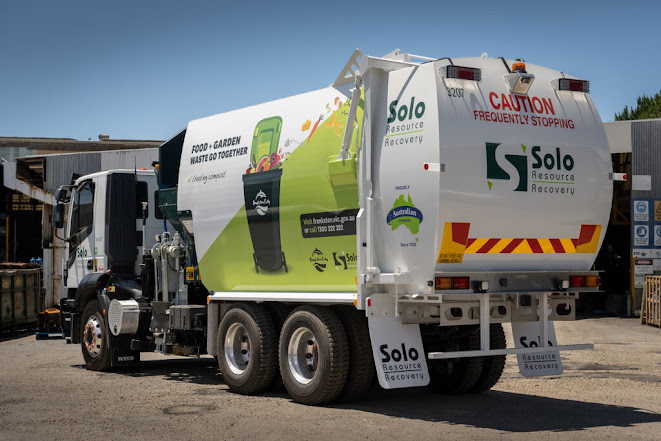Using Waste Management Services: The Benefits Along With Best Practices
For those operating a business, effective waste management is of considerable importance, as the growth of industries and expanding scale of consumption continue to place significant stress on the environment. Consequently, the adoption of efficient waste management practices has become an important element of responsible business conduct.
This article explains the benefits of business waste management services along with suggestions for best practices that organizations can embrace and implement.
The Benefits of
Waste Management Services for Businesses
Environmental
Conservation: A major advantage of employing waste
management services lies in their ability to contribute to environmental
preservation. Businesses can significantly reduce their carbon footprint through collaboration, proper waste disposal, recycling, and sustainable practices. This not only enhances an organization's reputation as an
environmentally conscious entity but also supports global efforts toward a
greener future.
Legal
Compliance: Stringent regulations and laws are in
place to ensure the proper disposal of waste. By engaging a reputable waste
management company such as Solo, you ensure that your business complies
with these regulations while avoiding potential fines and legal repercussions.
Adhering to these laws portrays your commitment to operating within the legal framework
and upholding societal responsibilities.
Resource
Optimisation: Waste management services go beyond just
waste disposal. Many waste materials can be recycled or repurposed,
transforming them into valuable resources. By embracing such practices,
businesses can reduce the need for raw materials, subsequently cutting costs
and conserving natural resources. This type of efficiency contributes to
sustainable operations and improved profitability.
Enhanced
Corporate Image: Demonstrating a commitment to
waste reduction and environmental stewardship can significantly enhance a
business's reputation. Consumers and clients are increasingly drawn to
companies that prioritize sustainability, and engaging a waste management
service like Solo sends a message that your organization is dedicated to making
a positive impact on the world.
Health and
Safety: Improper waste disposal can pose health and safety risks to employees,
customers, and the community. Solo can ensure that hazardous materials are
handled appropriately and that the overall work environment remains safe. This
commitment to safety not only protects human health but it also prevents
potential liabilities.
Best
Practices for Effective Waste Management
Assessment And
Planning: Every effective waste management strategy
begins with a comprehensive assessment of the types and volumes of waste
generated by your business. This evaluation informs the creation of a tailored
waste management plan, which we can help you with, outlining disposal methods,
recycling initiatives, and reduction goals.
Source
Separation: Businesses should encourage the
separation of waste at its point of origin, and designate bins for different
types of waste, such as recyclables, organic waste, and general trash. This
practice simplifies the sorting process, making recycling more efficient while
minimizing contamination.
Education and
Training: Employee engagement is pivotal in successful
waste management Businesses should conduct
regular training sessions to educate staff about proper waste disposal methods,
the importance of recycling, and the organisation's waste reduction goals, as a
well-informed workforce is more likely to actively participate in waste
management efforts.
Partnering With
A Waste Management Company: Collaborating with a
professional waste management company such as Solo is essential to undertaking
best practices. We possess the knowledge and resources to handle waste disposal
in compliance with government regulations, and our expertise extends to
implementing recycling programs and providing guidance on sustainable waste
practices.
Continuous
Monitoring and Improvement: Waste management is an
ongoing process, including regularly monitoring waste generation and disposal
patterns, and assessing the effectiveness of your strategies. Businesses can
use this data to identify areas for improvement and adjust their waste
management plan accordingly.
Innovation And
Technology: It is advisable to stay abreast of
advancements in waste management technology as this can assist with making
ongoing improvements and refinements. Innovative solutions like waste-to-energy
technologies or new recycling methods can make a positive impact while aligning
with your business's sustainability goals.
Public
Communication: Share your waste management efforts
with your stakeholders, including clients and the community. You can highlight your
achievements, such as the amount of waste diverted from landfills or the
reduction in overall waste generation. This transparency and promotion reinforces
and displays your commitment to sustainable practices.
In Summary
Waste management
services have evolved from being a mere necessity to an important aspect of
responsible business operations. The benefits, ranging from environmental
conservation to improved corporate image, are compelling reasons for organizations
to prioritize efficient waste management.
Embracing best
practices such as assessment, source separation, and partnering with a
reputable waste management company like Solo, can lead to effective waste
reduction and sustainable operations.


Comments
Post a Comment